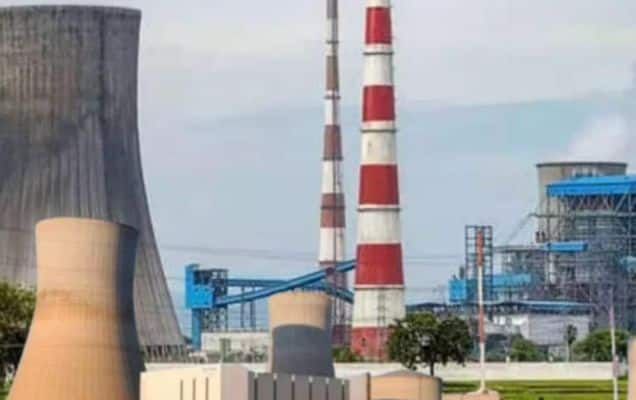At the invitation of H.E. Mr. Donald Tusk, Prime Minister of the Republic of Poland, Shri Narendra Modi, Prime Minister of the Republic of India, paid an official visit to Poland from August 21-22, 2024. The historic visit, came as both nations celebrate the 70th anniversary of their diplomatic relations.
Recognizing their long-standing ties, reaffirming the deep-rooted bonds of friendship between their countries and peoples, and commitment to realizing the full potential of their ties, the two leaders decided to elevate India-Poland bilateral relations to the level of a "Strategic Partnership”.
Both the Prime Ministers emphasized that shared values of democracy, freedom, and a rules-based international order, along with historical ties, are at the center of the growing bilateral partnership. They reaffirmed their commitment to deepening bilateral, regional, and international cooperation for a more stable, prosperous, and sustainable world.
Both leaders stressed the need to maintain regular high-level contacts to strengthen bilateral political dialogue and develop mutually beneficial initiatives.
The leaders agreed to further intensify bilateral economic relations, stimulate trade and investment, and explore new mutually beneficial areas of cooperation. In this regard, they agreed to fully utilize the Joint Commission for Economic Cooperation. The leaders also agreed that efforts should be made to balance bilateral trade and expand the trade basket.
Both leaders acknowledged the growing importance of expanding economic cooperation in sectors such as technology, agriculture, connectivity, mining, energy, and environment.
Acknowledging the critical role of digitalization in economic and social development, both sides agreed to bolster bilateral cooperation in this field, including in cybersecurity, to enhance stability and trust between the two countries.
The Prime Ministers emphasized the importance of connectivity between two countries and respective regions. They welcomed the commencement of direct flight connections between the two countries and stress the need for a further increase of direct flights connections to new destinations in both countries. Both sides underlined the importance of strengthening maritime cooperation, and the patency of infrastructure corridors.
The two leaders underscored that as the world’s two largest democracies, the EU and India have a common interest in ensuring security, prosperity and sustainable development in a multi-polar World They reaffirmed their commitment to deepen India-EU Strategic Partnership, which would not only benefit both sides but also have a far-reaching positive impact globally.
The two Prime Ministers expressed their commitment to peace and rules-based international order with the UN Charter at its core and agreed that cooperation in the sphere of security in its multiple dimensions is vital during serious conflicts and tensions in various regions of the world. They decided to enhance collaboration at multilateral forums to promote respect for rules-based international order and maintain global peace, stability, and security.
Both sides recognized the need to strengthen and deepen cooperation in the defence sector. To this end, they agreed to fully utilize existing bilateral mechanisms, including the Joint Working Group for Defence Cooperation.
The two leaders expressed their deepest concern over the war raging in Ukraine including its terrible and tragic humanitarian consequences. They reiterated the need for a comprehensive, just, and lasting peace in line with international law, consistent with the purposes and principles of the UN Charter, including respect for sovereignty and territorial integrity. They also noted the negative impacts of the war in Ukraine with regard to global food and energy security, especially for the Global South. In the context of this war, they shared the view that the use, or threat of use, of nuclear weapons is unacceptable. They underscored the importance of upholding international law, and in line with the UN Charter, reiterated that all states must refrain from the threat of or use of force against the territorial integrity and sovereignty or political independence of any state.
The two leaders reiterated their unequivocal condemnation of terrorism in all its forms and manifestations and emphasised that no country should provide a safe haven to those who finance, plan, support or commit terrorist acts. Both sides stressed the need for firm implementation of relevant resolutions of the UN Security Council, the UN General Assembly, as well as the implementation of the UN Global Counter-Terrorism Strategy. They also reaffirmed on the early adoption of the Comprehensive Convention on International Terrorism (CCIT).
The two sides reinforced their commitment to a free, open and rules-based Indo-Pacific in accordance with the international law of the sea as reflected in UNCLOS and with full respect for the sovereignty, territorial integrity and freedom of navigation to the benefit of the maritime security and international peace and stability.
Recognizing the significant challenges posed by climate change, both leaders agreed on the importance of cooperation in climate action initiatives. Indian side encouraged Polish side to consider Poland’s memberships of the International Solar Alliance (ISA) and the Coalition for Disaster Resilient Infrastructure (CDRI).
Appreciating the role of parliamentary contacts, the leaders agreed that expanding exchanges and cooperation between their legislatures would significantly deepen bilateral ties and mutual understanding.
The Prime Ministers noted the longstanding special people to people ties and agreed to strengthen these further. They also agreed to expand cooperation in the areas of culture, education, science, research, and health. They welcomed efforts to promote and encourage additional steps to establish future-oriented partnerships between academic institutions.
The leaders acknowledged the role of tourism in driving economic and business opportunities and enhancing understanding between the people of both countries.
To implement the Strategic Partnership, both sides agreed to a five-year Joint Action Plan for 2024-2028.
Prime Minister Modi thanked Prime Minister Tusk and the people of Poland for the hospitality extended to him and his delegation and he invited Prime Minister Tusk to visit India.













